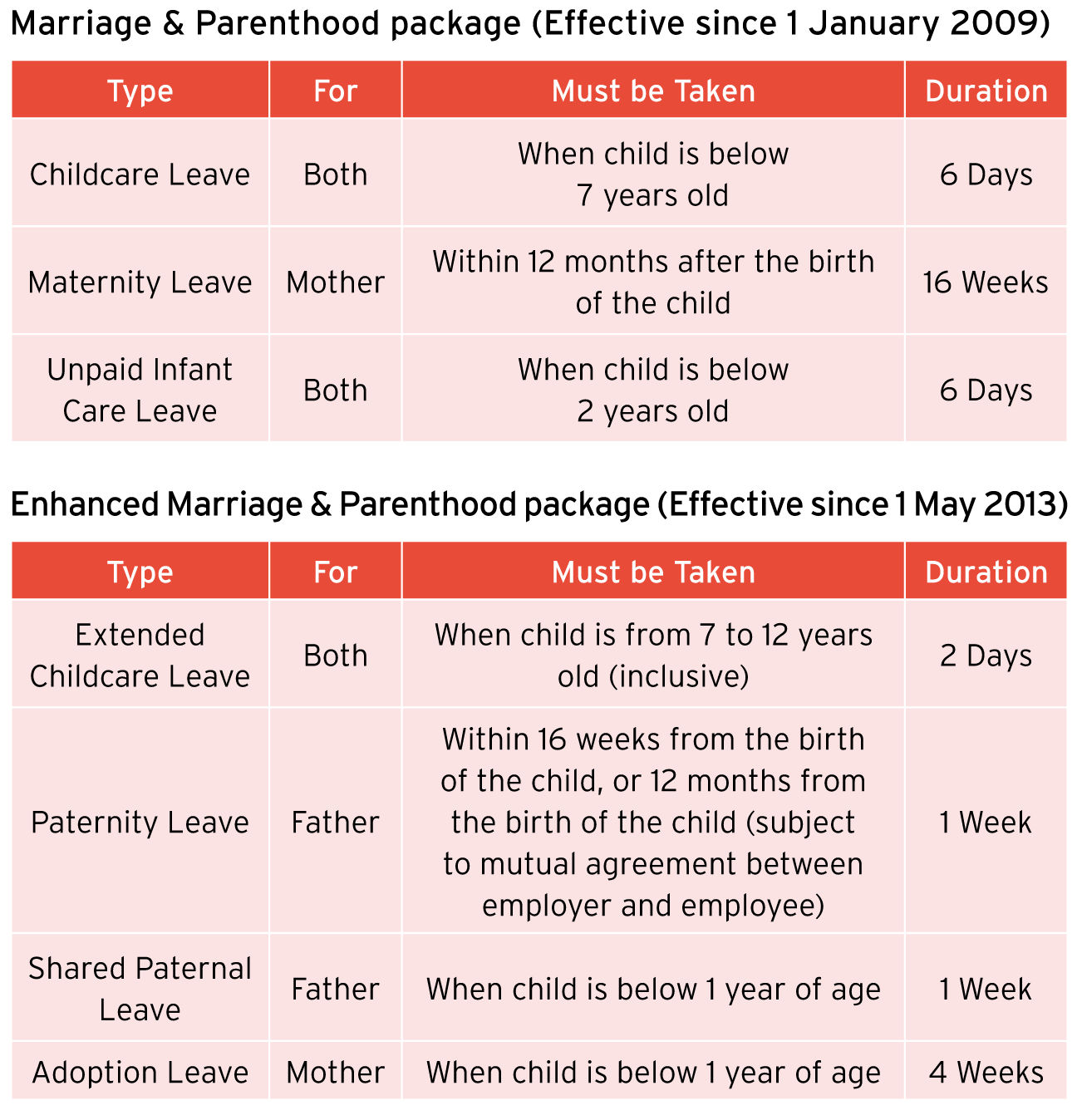Singapore Leave & Holidays
17 May 2018
All employees covered by the Employment Act are entitled to 11 paid public holidays in a year.
Public Holidays
The 11 gazetted public holidays are:
1. New Year’s Day
2. 1st Day of Chinese New Year
3. 2nd Day of Chinese New Year
4. Hari Raya Puasa
5. Hari Raya Haji
6. Good Friday
7. Labour Day
8. Vesak Day
9. National Day
10. Deepavali
11. Christmas Day
The employer and employee may mutually agree to substitute a public holiday for any other day.
Unpaid public holiday
The employee is not entitled to Public Holiday pay if he is on:
- Unauthorised leave on the day immediately before or after a holiday
- Approved no pay leave immediately before and after a holiday
Public holiday work
Employers may sometimes require an employee to work on a public holiday. If so, the employee should be paid:
- An extra day’s salary at the basic rate of pay for working on the public holiday; and
- The gross rate of pay for that holiday is already included in the monthly gross salary
If the employee works beyond normal working hours on a public holiday, the rate of overtime payment must be at least 1.5 times the employee’s hourly basic rate of pay.
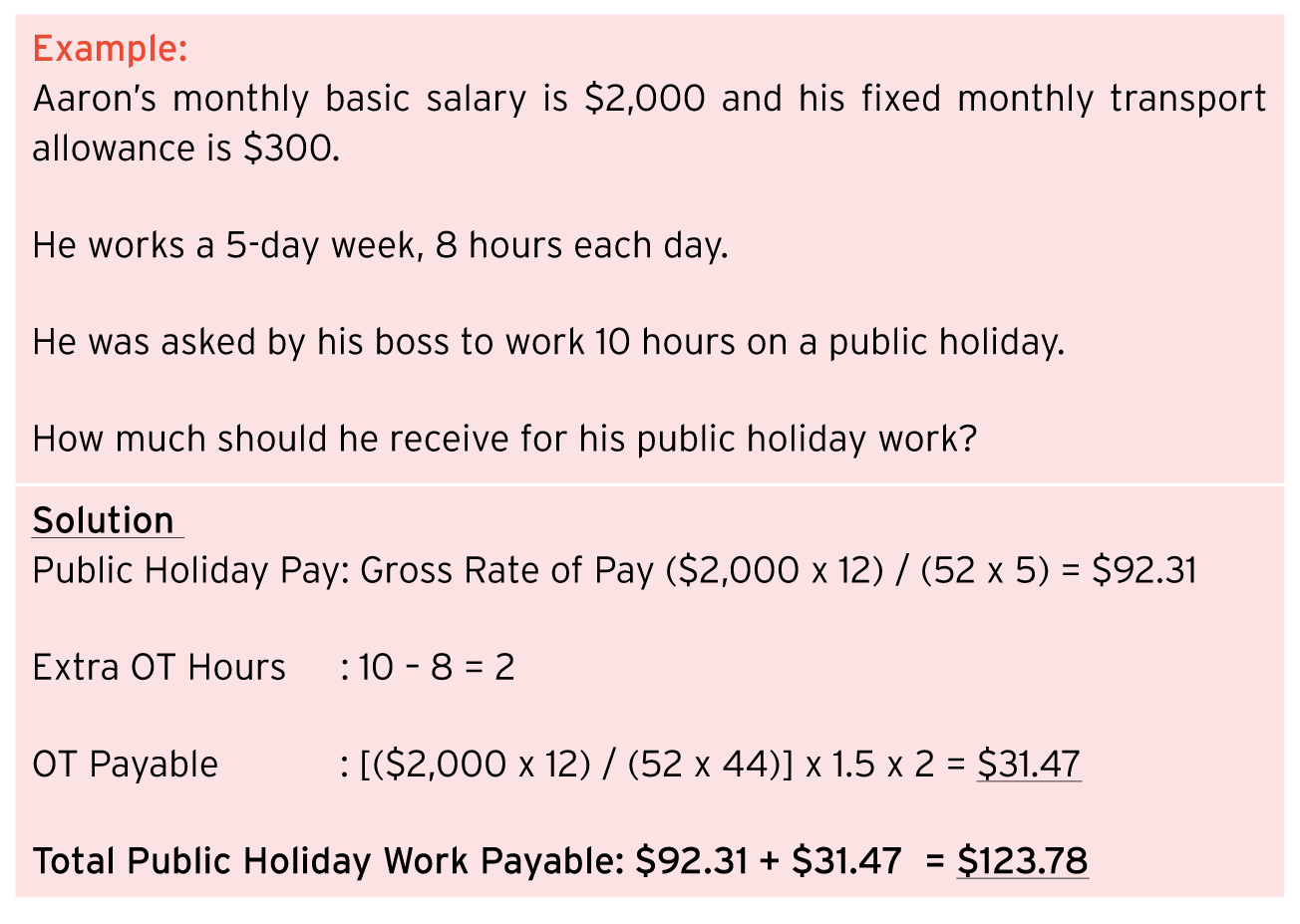
Absence before or after a public holiday
A monthly-rated employee who works on a public holiday but absents without reason on the working day immediately before or after the holiday is not entitled to the holiday pay that is already included in his monthly gross salary.
His employer can therefore deduct one day’s pay at the gross rate for the holiday pay from his monthly gross salary.
Annual Leave
Entitlement
An employee is entitled to annual leave if he/she has worked for at least three months.
An employee’s annual leave entitlement under Part IV of the Employment Act is as follows:
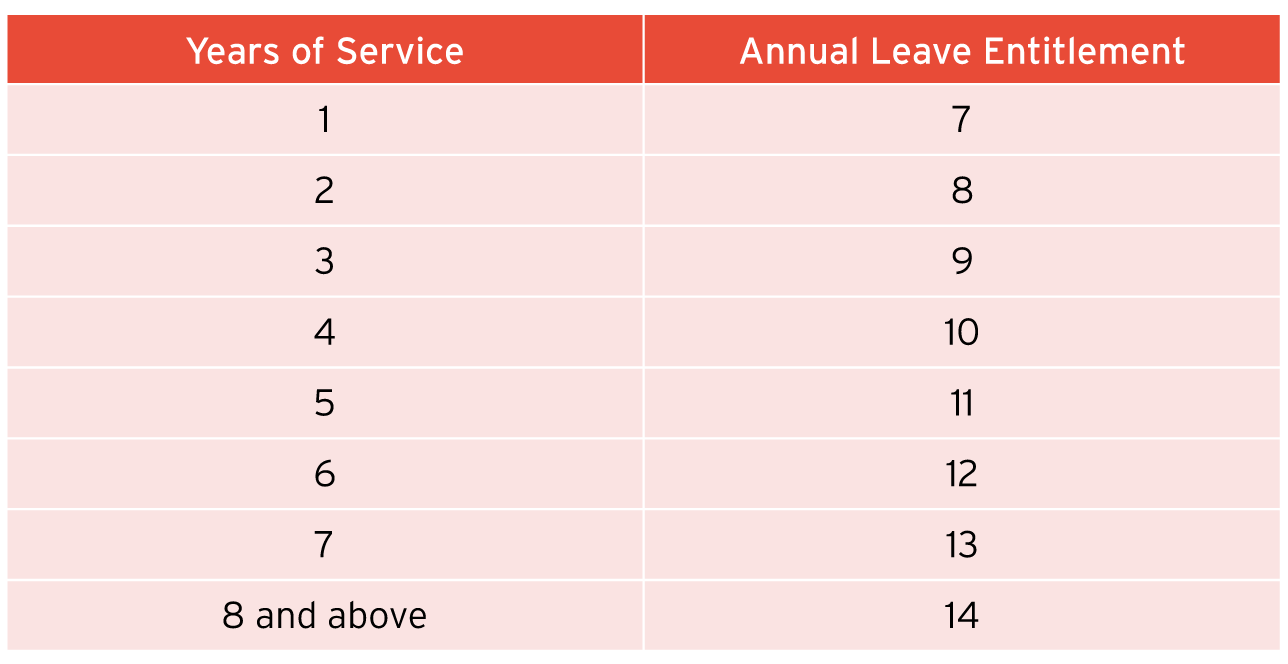
An employee’s year of service begins from the day he/she started work with the employer.
The following applies to employees who have worked less than a year:
1. His/her annual leave should be prorated using the following formula:
(No. of months in service/12) x Annual Leave Entitlement
2. Periods of no-pay leave should not be included when computing annual leave entitlement.
Encashing annual leave
Annual leave may be encashed under the following circumstances:
1. Termination of employment by either the employer or the employee
2. At the discretion of the employer
3. Contractual agreement between employer and employee
Formula to calculate annual leave:
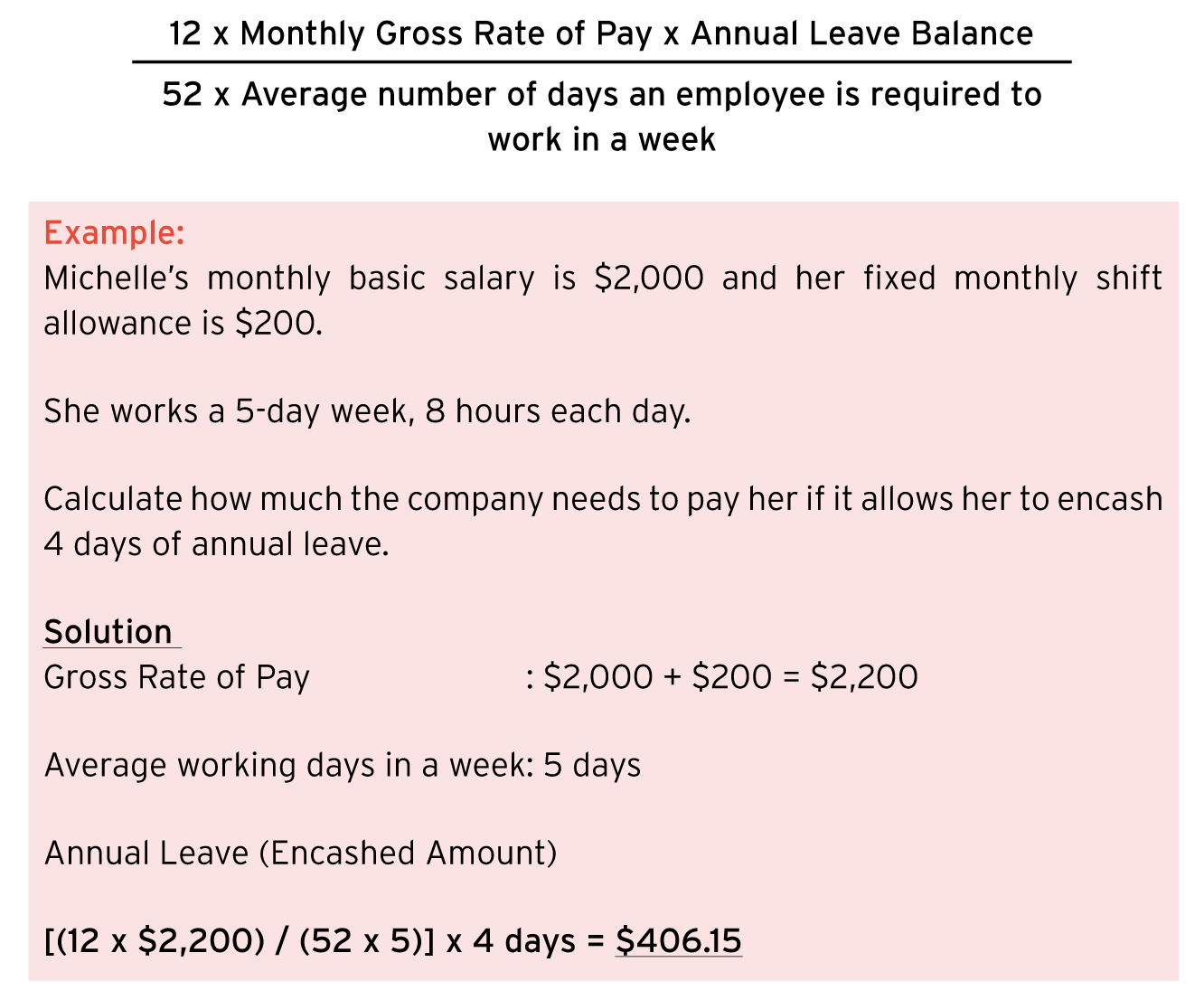
Unpaid Leave
In the event where the employee has no annual leave left, the employer may allow him to take unpaid leave.
The formula for deducting unpaid leave for a monthly-rated worker is:
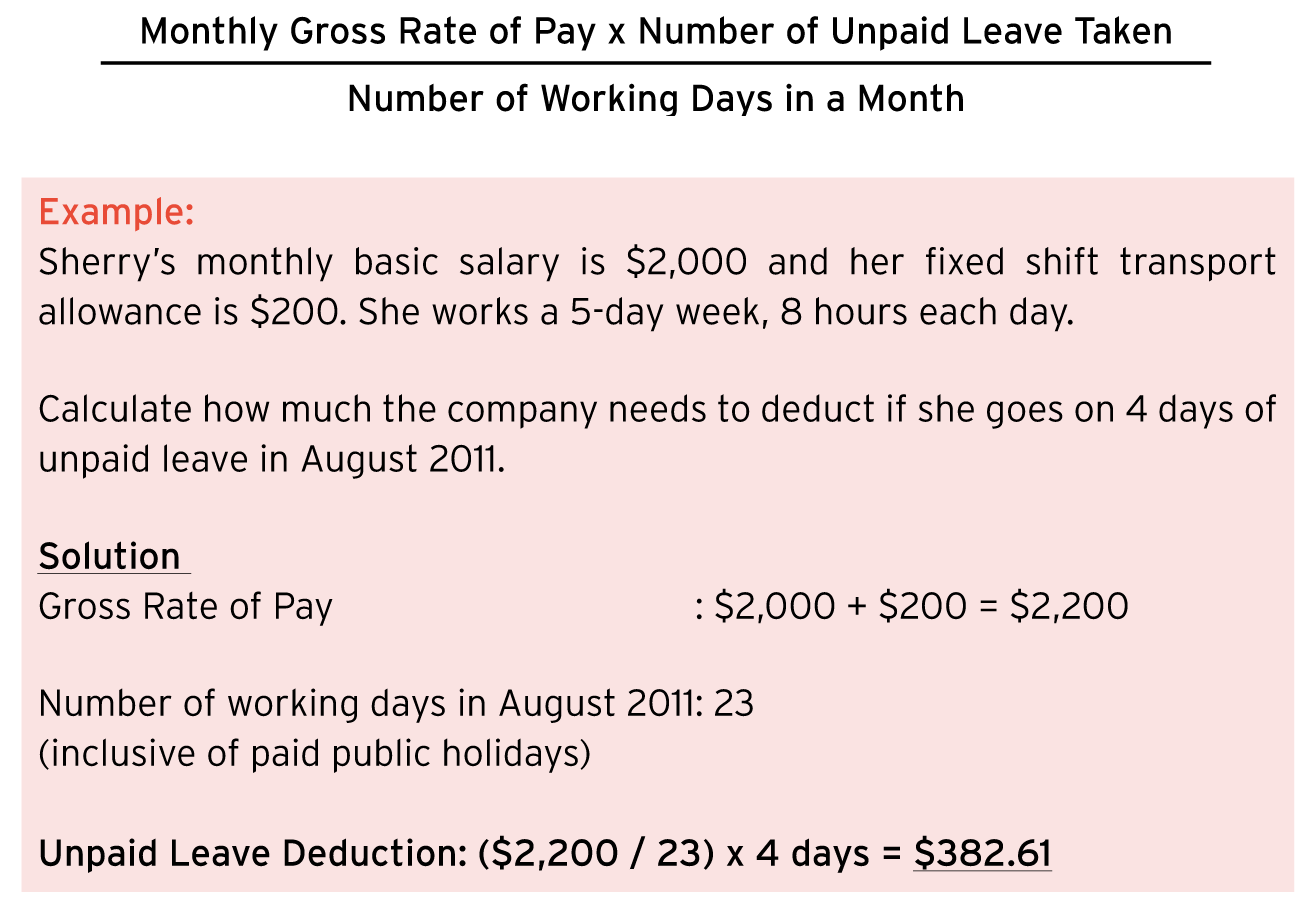
Sick Leave
An employee covered by the Employment Act is entitled to paid sick leave, including medical leave issued by a dentist if:
- The employee has served the employer for at least three months.
- The employee has informed or attempted to inform the employer of his/ her absence within 48 hours. Otherwise, the employee will be deemed to be absent from work without permission or reasonable excuse.
- The sick leave is certified by the company’s doctor, or by a government doctor (including doctors from approved public medical institutions).
The number of days of paid sick leave a new employee is entitled to depend on his service period:
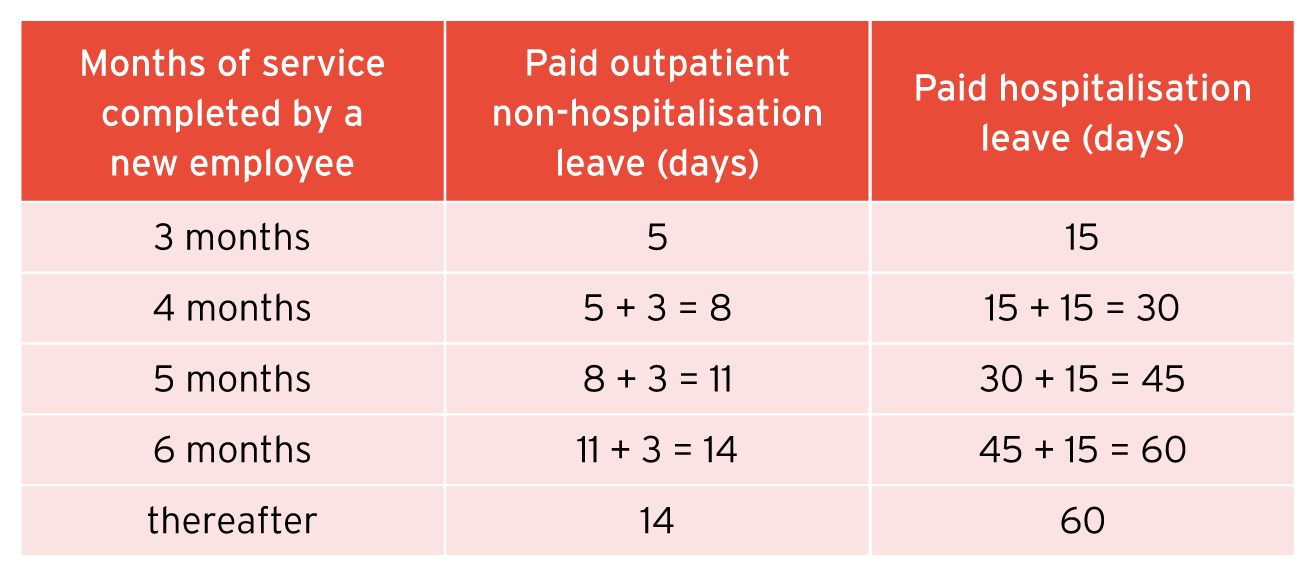
If an employee has worked for at least three months, his employer is legally obliged to bear the medical consultation fee. For other medical costs, such as medication, treatment or ward charges, the employer is obliged to bear such costs depending on the medical benefits provided for in the employee’s employment contract or the collective agreement signed between the company and the union.
Sick leave taken on a half working day
Sick leave taken on a half working day (e.g. Saturday) should be considered as one day’s sick leave.
Government-paid Leave Schemes
Government-paid leave schemes were introduced under the Child Development Co-Savings Act to cover parents of Singapore Citizen children, ncluding managerial, executive and confidential staff. This is to foster an overall pro-family environment in Singapore.
An employee will be entitled to the following leave schemes if he/she is covered under the Child Co-Savings Act and fulfils all conditions required for each leave type.
